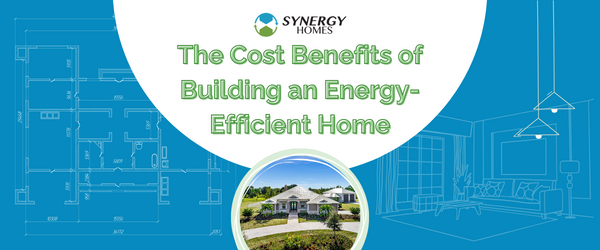“Energy efficiency” is the buzziest of buzzwords – but what does it mean? How do you achieve it? What does it look like in your home? Where do you start? In this article, we have answers to frequently asked questions about energy efficient homes.
Energy Efficient Home FAQ List
Q: Can I make an existing home more efficient?
A: Yes! You can, and should, make every effort to make an existing home more energy efficient. There are myriad steps you can take, from upgrading your windows and insulation to adding weather stripping and more energy-conscious lighting, fixtures, and appliances. Whatever we can do to make our homes more efficient – and more comfortable – is important.
The first step is getting a home energy audit from your utility provider. They will evaluate your home and see where and how you can boost efficiency.
Q: Can I save money by just upgrading an existing home?
A: This can have both an immediate and a long-term impact on your energy consumption. How about your energy bills and budget though? It’ll take years (if ever) to see a full return on your investment for most improvement projects. They are well worth doing – but they won’t pay you back as quickly as you might think. You may spend $1000, for example, to save $100 a year. It’ll take 10 years to recoup the investment. This can make sense for a long-term solution like spray foam insulation. But if the life of the improvement is less than the time it’ll take to get your money back… You may want to rethink it. Or at least plan and budget for it! Again, though, any step we can take to reduce consumption and increase sayings is important.
Q: What makes a home “energy efficient”?
A: Probably at the top of the most frequently asked questions about energy efficient homes. An energy efficient home is more than the sum of its parts. That is, it’s more than a few Energy Star rated appliances, more than insulation, more than windows and doors, more than a solid HVAC system and good airflow…. It is how these systems and components work together that elevates a home to a high-performance home. It is designed with efficiency in mind from the get-go and built utilizing the most advanced construction techniques and materials in the industry.
As mentioned, any home can become more efficient. But when it is built from the ground up with performance in mind, it is much more effective – not to mention cost-effective.
Q: What is a “thermal envelope”?
A: If you have grown up and/or lived in an older home – or even if you’ve just visited on a chilly winter night or a humid summer day – you know that they can be drafty! In the winter, you can feel the cold drafts invading while the heating system struggles to keep up; in the summer, hot, muggy air sits stagnant as the air conditioner chugs along with seemingly little effect. You will also notice that each scenario can bring sticker shock when you open your utility bills.
A home built with a tight thermal envelope, on the other hand, will not only cut your consumption and your energy bills now but will help build and retain value years down the road. The thermal envelope refers to any structure – roof, foundation, insulation, doors windows, exterior walls – that separates indoor air from the outdoor air. These components significantly reduce air transfer. This means that your AC’s hard work or your heater’s efforts will not just fly out the window.
Again, while you can take steps to improve the thermal envelope in an existing home, it is not as effective as building with this intent in the first place.
Q: What is HERS?
A: When buying or building a home, you’ll encounter far more acronyms than you ever wanted! HERS is one of them. It stands for “Home Energy Rating System.” A HERS score indicates how efficient a home is. As with golf, the lower the score, the better! The average for an older home is about 130, while the average for a new build is about 100. We can do better – and homebuyers and owners deserve better.
The Synergy Homes Gold and Platinum Series are up to 75% more efficient than existing homes and up to 50% more efficient than average new builds. With an exceptional HERS score, you can be assured that you’ll vastly cut consumption and slash your utility bills.
Q: How do I get started?
A: More and more of us are interested in living a lifestyle that is less focused on consumption and more focused on sustainability. And, let’s face it, we also want to save money! An energy efficient home is a good way to accomplish your goals.
These are just a few of the frequently asked questions about energy efficient homes we get on a daily basis. To discuss your needs and to learn how our team can bring your vision of a dream house to life, contact Synergy Homes.

Comments are closed here.